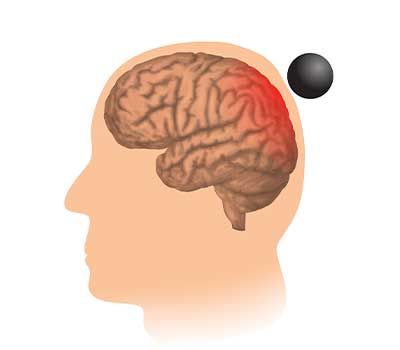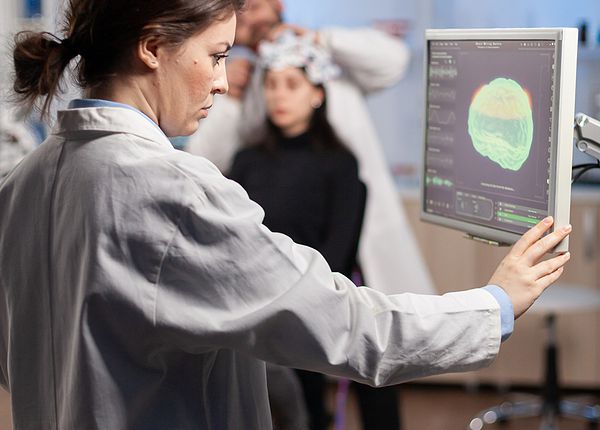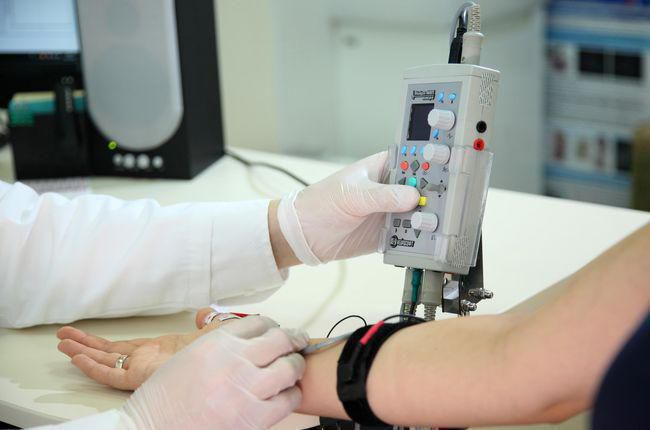Dementia and Alzheimer's
A set of symptoms that implicate permanent loss of brain function in the form of acute memory loss, difficulty in thinking, inability to fulfill everyday activities, problem-solving or language interpretation is termed as dementia. Almost 60-80 percent of the population suffering from Alzheimer's disease is due to dementia. Dementia that occurs immediately after a stroke is known as vascular dementia and is the most common type of dementia. Although not every condition of memory loss if related to dementia, there are several other symptoms that mimic signs of the condition such as thyroid issues and vitamin deficiencies.
Alzheimer's disease is a progressive brain disorder that eventually damages and destroys the brain's ability to think and memorize. Disabilities range from situations when the patient may not be able to carry out the simplest of tasks. The symptoms of Alzheimer's disease generally begin to appear during the mid-60s.
What are the symptoms of dementia?
Several signs and symptoms may show that the person is suffering from memory loss, but it may not be related to dementia making it tricky to diagnose. A condition of dementia is recognized when at least two of the below mental abilities have started to dysfunction.
- Memory
- Communication and language interpretation
- Ability to focus and pay attention
- Reasoning and judgment
- Visual perception
Patients experiencing an onset of dementia may have difficulty memorizing to pay bills on time, keep track of expenditures, remembering appointments and bookings, etc.
In case you or your loved ones are experiencing the above disability, it is vital to seek medical attention at the earliest as a professional evaluation may detect a treatable condition. Early detection can minimize the chances of an irreversible condition restoring harmony and an opportunity to resume normal brain functions.
What are the signs and symptoms of Alzheimer's disease?
The sign and symptoms of Alzheimer's disease begin with memory problems, which is a typical indication of cognitive impairment. Patients experiencing memory issues are known to have a condition called Mild Cognitive Impairment (MCI). It is a condition where people experience unusual memory loss that isn't normal for their age. Other disabilities include problems with the sense of smell, word-finding, vision/spatial issues, and impaired reasoning or judgment.
What causes dementia?
The brain is comprised of several regions that are responsible for performing different functions such as making a judgment, memorizing, performing a movement, responding to hunger, etc. Dementia is generally caused when these regions fail to interact and communicate with each other. This is typically a sign of damaged brain cells. In light of such a condition, the brain fails to perform other normal functions as well such as thinking, speaking, and ability to respond or understand feelings.
Dementia is also classified based on the type of brain cell damage.
Although changes experienced in the brain due to dementia are permanent, impairments to functions such as thinking and memory can be resolved by treating depression, side-effects of drugs, excessive use of alcohol, thyroid problems, and vitamin deficiencies.
What are the causes of Alzheimer's Disease
Dementia is the common cause of Alzheimer's in older adults. It is the loss of cognitive functions such as memory loss, ability to reason, thinking, activities that interfere with the patient's daily life and other activities. Dementia can range from mild stages i.e when the disease has only begun to affect the patient to severe stages when the patient has to completely depend on others to carry out their day-to-day activities.
Dementia can be caused due to varying changes in brain cells. Types of dementia include Lewy body dementia, vascular dementia, and frontotemporal dementia.
Overall, genetic, environmental, and lifestyle factors have a significant role to play behind the cause of Alzheimer's.
How is dementia diagnosed?
No singular test has been discovered to assess and indicate dementia. Diagnosing dementia is carried out by performing several examinations by an experienced therapist, undergoing laboratory tests, and behavioral analysis.
Types of dementia
Creutzfeldt - Jakob disease
It is the most common form of a group of rare, and fatal brain disorder.
Lewy Body Dementia
It is a progressive type of dementia that results in a decline in thinking, reasoning, and independent function due to unusual mini deposits that damages brain cells over time.
Down syndrome and Alzheimer's disease
It is a condition in which a person is born with a full extra copy of chromosome ‘21’. Down syndrome causes developmental problems and health issues. As the genetic disorder progresses, it can lead to Alzheimer's disease
Frontotemporal Dementia
FTD or frontotemporal dementia refers to a group of brain disorders that are caused due to loss of nerve cells in the brain's frontal lobes or temporal lobes.
How do doctors diagnose Alzheimer's disease among patients?
To facilitate the diagnosis of Alzheimer's disease, doctors use many methods and tools to determine whether the patient is suffering from dementia or Alzheimer's caused by dementia.
Diagnosis may involve:
- Understanding the patient's overall health, past medical records, recognize changes in behavior or personality, and his/her ability to carry out daily tasks without dependency.
- Conducting clinical tests of memory, counting, problem-solving, attention, and language.
- Performing routine medical tests such as blood and urine tests
With the help of CT, MRI, or PET (Positron emission tomography), perform brain scans to rule out any lurking symptoms of the disease.
Early diagnosis is recommended as it helps begin treatment before the condition progresses, plan for the family's future, and give the patient's a better opportunity to participate in clinical trials that are discovering better and advanced treatments for Alzheimer's disease.
In case you have been experiencing any of the above, visit our practice for further assistance with your condition. Call us today to request an appointment at 669) 235-4188.




